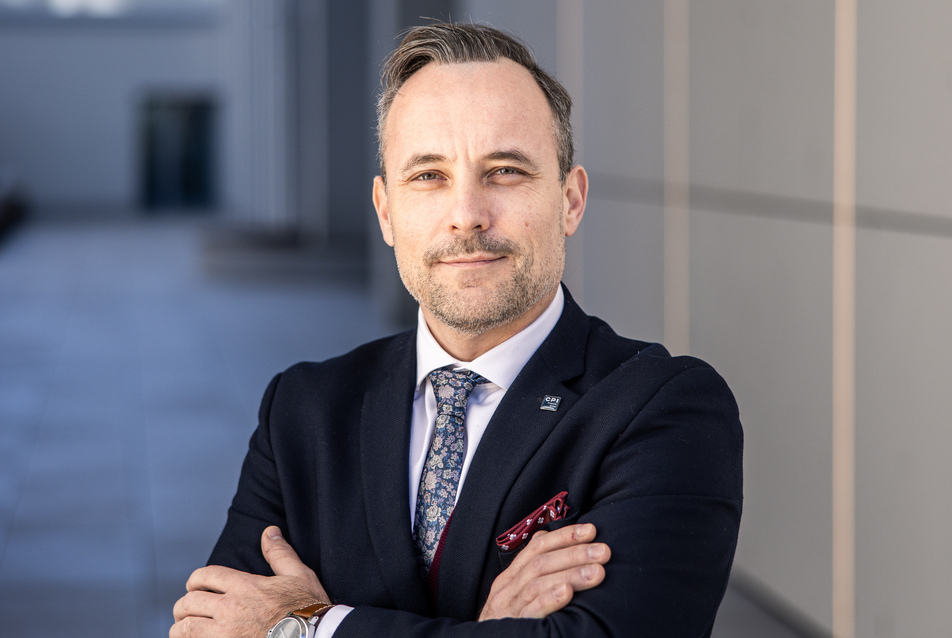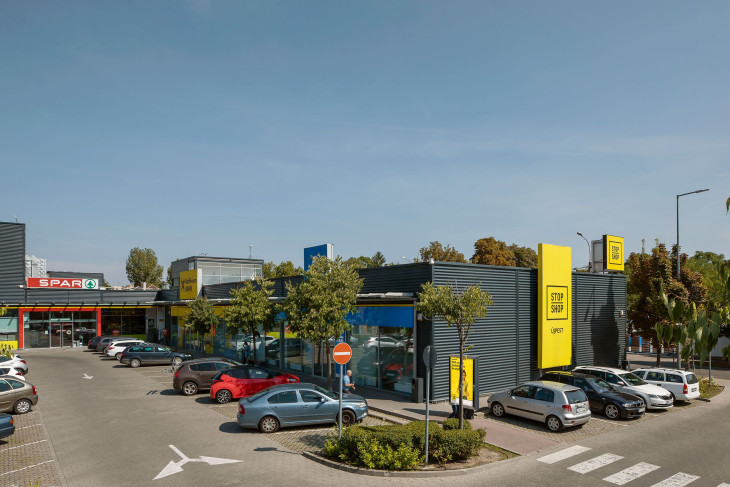BBJ: How did CPI cope with the stormy waves of 2024? What were your figures like?
Mátyás Gereben: CPI Hungary managed HUF 1.3 billion of investments in 1,200 active capital expenditure and tenant refurbishment investment projects in Hungary in 2024. Accordingly, 321 building technical renovations were completed last year alone, and 218 retail spaces were converted based on tenant needs. Our Budapest hotels had realized a 12% revenue increase by year-end 2024 compared to 2023, thanks to a 4% rise in occupancy and a 6% average rate increase. This year’s biggest challenge will be the opening and market introduction of two projects on Mérleg utca: the 54-room, four-star Superior Mamaison Hotel Chain Bridge Budapest and the 99-room, four-star Mamaison Vibe Hotel Budapest Downtown. Despite the challenging environment in 2024, the company signed 76 office lease agreements across 54,500 sqm and achieved far above-average occupancy rate performance in the domestic market.
BBJ: How do you assess Hungary’s real estate market as we enter Q2 2025?
MG: Over the past decade, we have witnessed incredible changes. The pandemic, the fight against global warming, and the economic and energy crises present challenges, while the advancement of technology, green solutions, and flexible, experience-based services offer opportunities. In general, one must think like a chess player: not only must countless variations be considered, but each move must also align with the long-term vision. Today, real estate managers need thorough, predictive strategies to keep their building stock flexible and competitive while collaborating with their tenant communities to overcome obstacles and implement new opportunities. A key factor in this complex equation is a diversified portfolio, where a company holds various asset types, requiring tailored solutions for the current economic environment. Modern-day property managers must also focus on their tenants’ vision. The relationship between landlord and tenant is no longer simply a business-based system but a single shared ecosystem, where success is collective when overcoming challenges.
BBJ: Could you go into more detail about that tenant relationship?
MG: With tenant companies increasingly demanding more flexibility in office spaces, given their difficulty in committing to long-term leases, we launched a completely new product on the office market with the introduction of the CPI Club last year. In practice, we offer tenants a new type of space, functioning like a loyalty program. For example, several office buildings now offer immediately available office spaces, serviced offices tailored to individual and corporate needs, and even conference and meeting rooms. Additionally, nine multifunctional Club Corners have been created in common building areas to facilitate informal networking as well as work activities. The service-based approach comes hand-in-hand with experiential solutions, especially since the rise of home office work during the pandemic has somewhat waned. Employees are spending more time in offices, making new services potential sources of inspiration for corporate community building. That includes organized markets in office complexes, dry cleaning and massage services, and gyms. Last year, we launched 32 new well-being services, and business and concierge services became available in five more office buildings, extending the offering to 10.
BBJ: Driven by the energy crisis, sustainability concerns and the need to meet ESG criteria, the commercial real estate market is increasingly focused on green solutions. What are you doing on this front?
MG: CPI Hungary is working to gain a competitive edge through more efficient information flow with tenants, sustainable energy supply, the first-ever market ESG roadmap, and green contracts to reduce harmful emissions. Last year, every new tenant signed such deals. The company also continued tenant forums, with discussions held in 15 buildings to align sustainability efforts and identify new tenant needs. We aim to continuously develop our diversified real estate portfolio, strengthen sustainability efforts, and offer flexible office solutions and well-being services to meet tenant needs.
BBJ: You have talked about green contracts; what about green energy?
MG: It is becoming increasingly important in sustainable real estate strategies. In 2024, we installed small solar panel systems on the rooftops of our two City Market shopping parks, City Market Soroksár and City Market Dunakeszi. Today, we generate nearly two megawatts of energy through solar power. Additionally, we renewed the “Very Good” Breeam In-Use certification for 12 of our office buildings. Three of its shopping centers also received this certification for the first time last year. CPI is committed to a circular economy, aiming to extend the lifespan of building equipment through high-quality maintenance and modernization while minimizing environmental impact. Given all that, it’s no surprise, but it is a great honor, that we received the “Facility Management Company of the Year” award at the 2024 Portfolio Property Awards, along with a special prize for our newest CPI Club brand. By 2030, we aim to reduce the carbon footprint of our managed buildings by 30%, and we are expanding our use of energy from sustainable sources. The company is also part of the Hungarian Green Building Council ESG working group, where the goal is to develop a roadmap towards net-zero emissions.
BBJ: If that covers the “E” of ESG, what about the “S” for social responsibility?
MG: CPI is keen to play its part. Together with the Bábozd Zöldre Foundation, our employees cleaned a nature trail and renovated a playground last year. The company also cares for its employees’ physical and mental health, offering preventive screenings, psychological consultations, and skill development training. As a result, employee satisfaction continued to rise in 2024.



.jpg)


.jpg)





